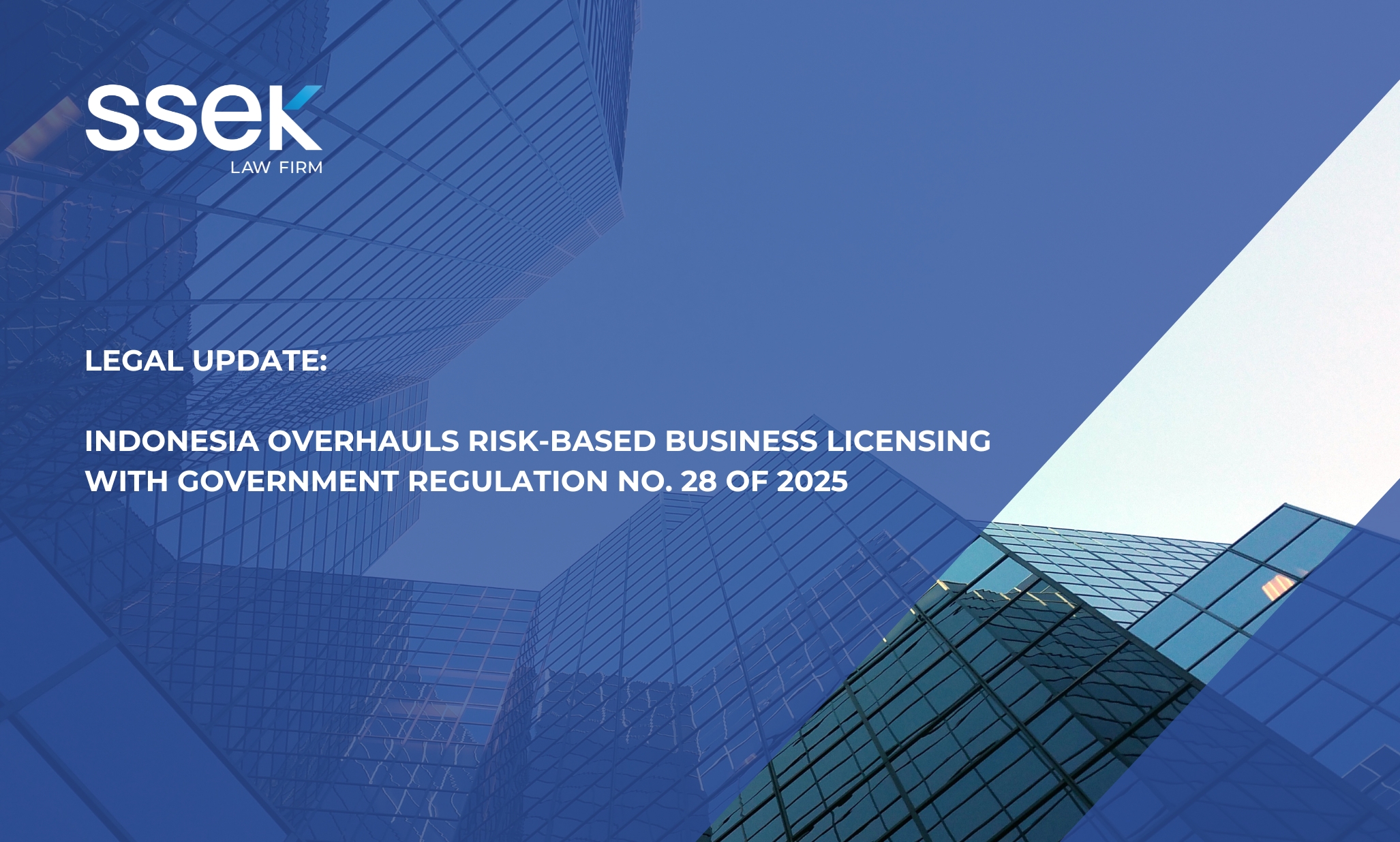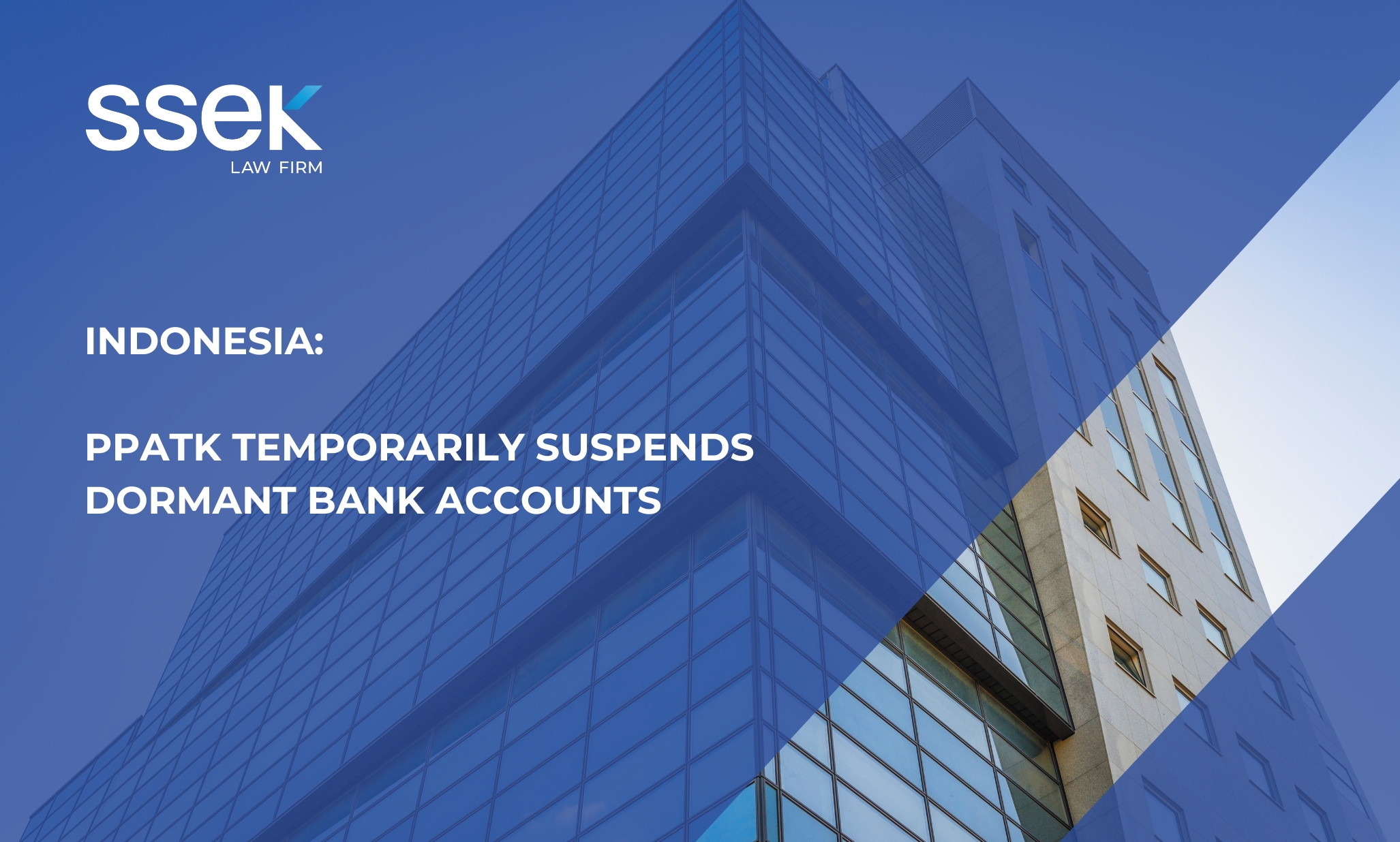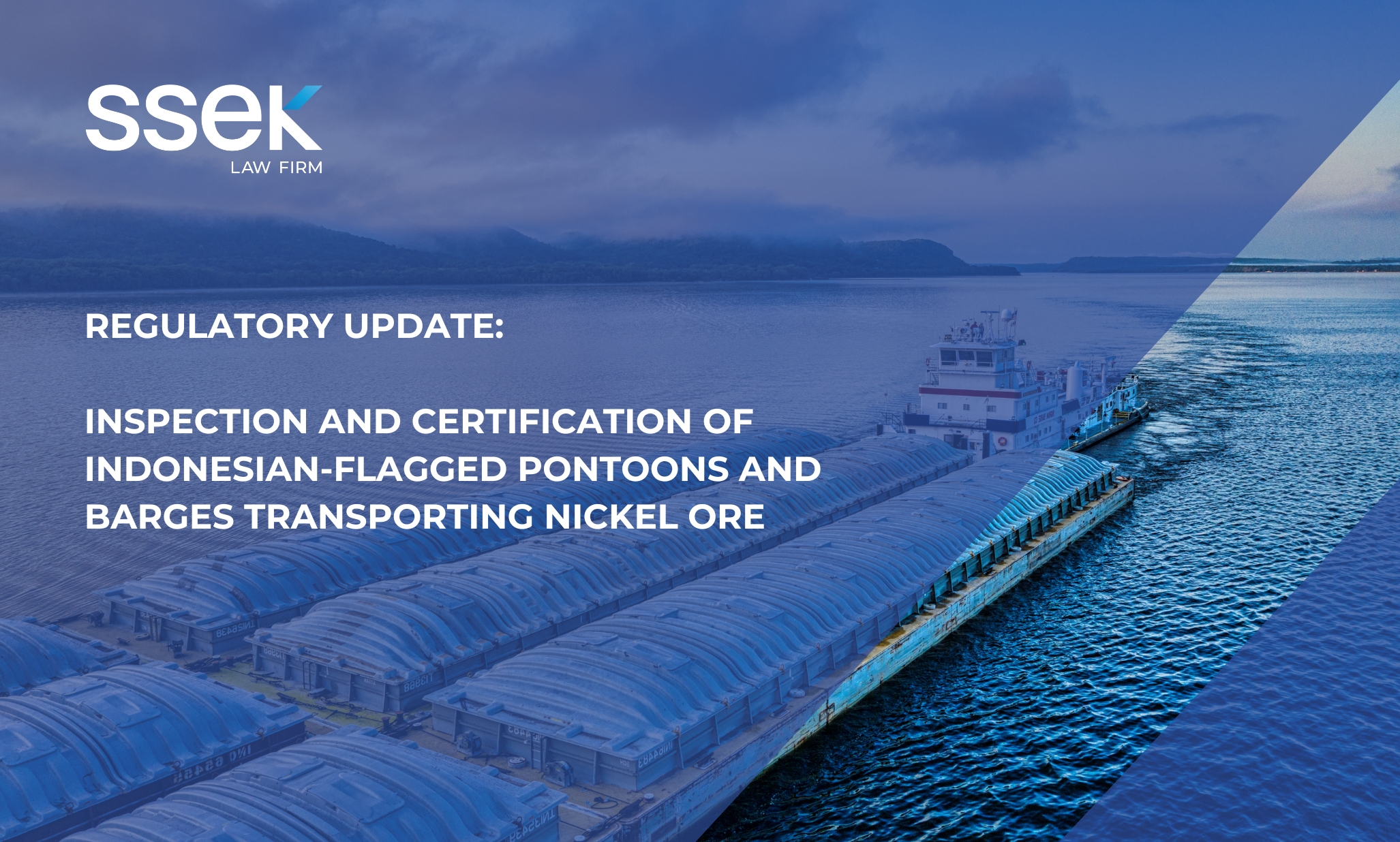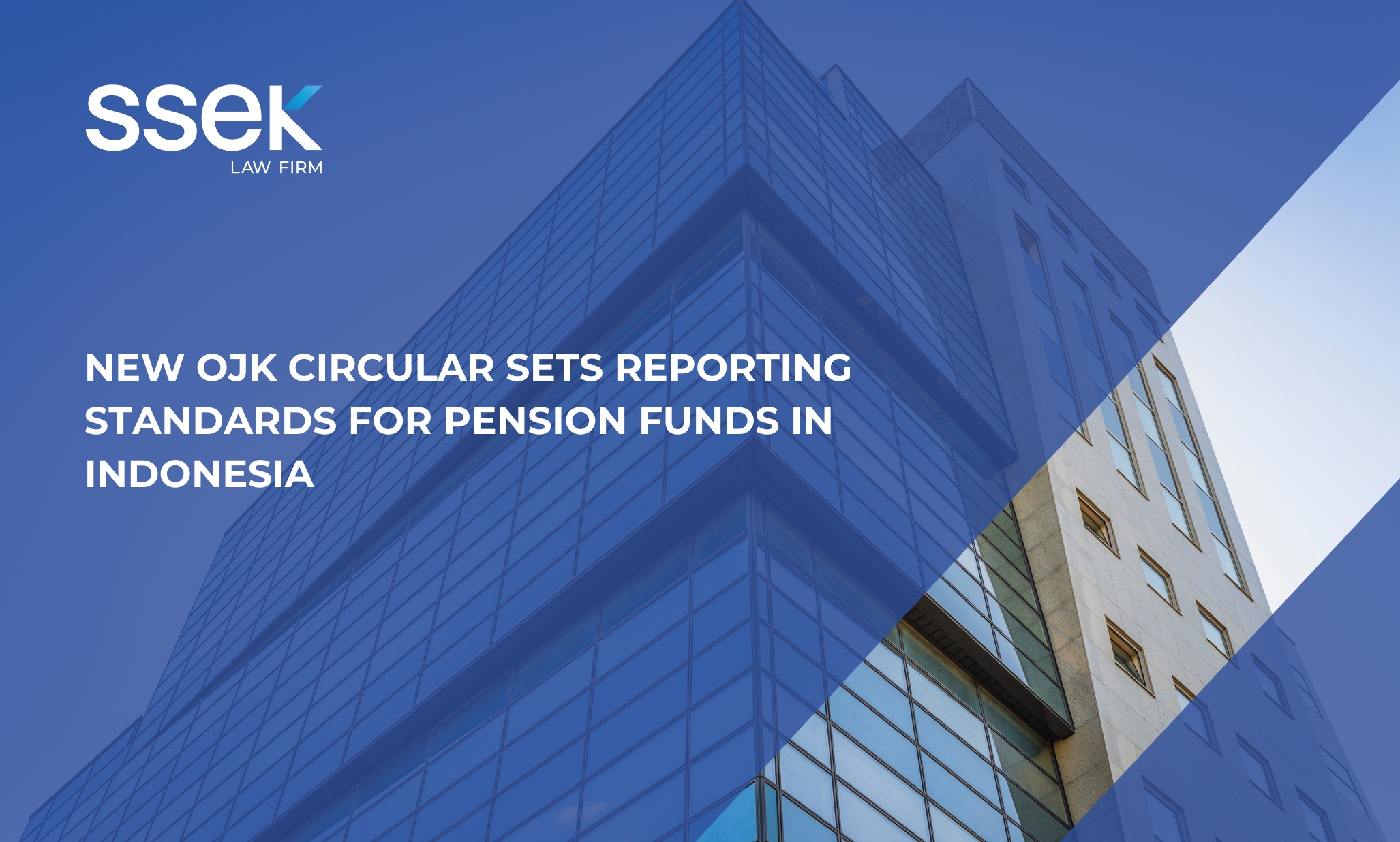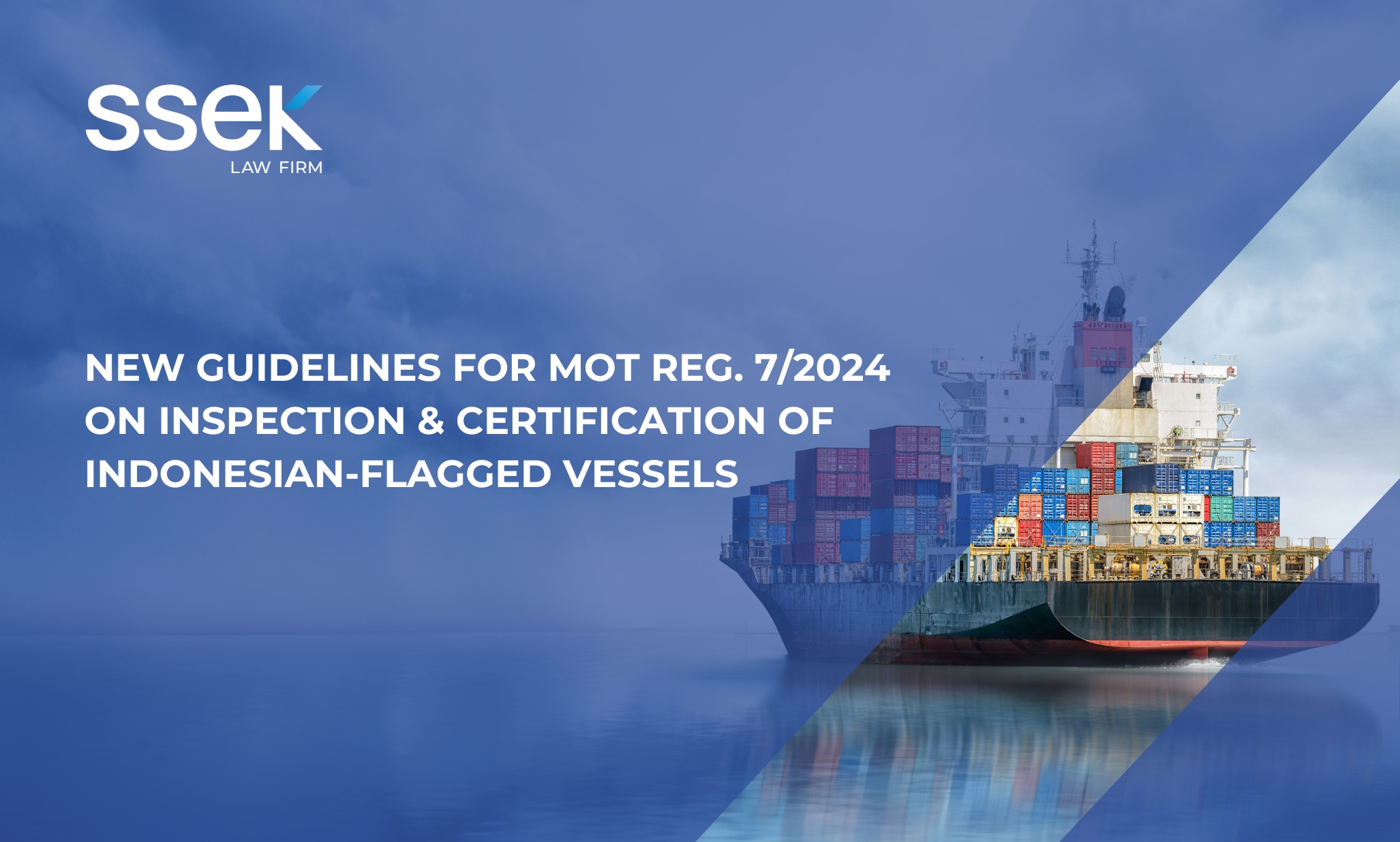


Indonesia’s Directorate General of Sea Transportation has issued new guidelines to support the implementation of Minister of Transportation Regulation No. PM 7 of 2024 concerning the Harmonization of Inspection and Certification Systems for Indonesian-Flagged Vessels (“MOT Reg. 7/2024”) (“DGST Decree 365/2025”).
The core purpose of the new guidelines, contained in Decree No. KP-DJPL 365 of 2025 (“DGST Decree 365/2025”), is to harmonize the inspection and certification system for Indonesian-flagged vessels and enhance efficiency, effectiveness, and maritime safety. The decree clarifies the different types of ship surveys, including initial, annual, intermediate, and renewal surveys, along with the requirements for certificate issuance, validity periods, and endorsement procedures. It also addresses conditional certificates for vessels with outstanding recommendations, procedures for sealed permanent certificates, and guidelines for classification bodies involved in vessel certification.
Key Changes and Provisions
Under DGST Decree 365/2025, maritime offices, including the Main Harbormaster and Port Authority Office, Batam Harbormaster and Special Port Authority Office, Harbormaster and Port Authority Offices, Port Management Units, and Transportation Attaches, are assigned key responsibilities. These offices are authorized to conduct initial and renewal (special) surveys, after which they may issue provisional certificates validity for up to three months from the Date of Completion of Survey.
Following the issuance of a provisional certificate, shipowners and operators must apply for permanent certificates to the Director General of Sea Transportation through the Director of Shipping and Seafaring. For renewals, the validity period shall:
- commence from the previous certificate’s expiration date, if the renewal survey is completed within three months before or after the expiration of the existing certificate; or
- commence from the date of completion of the survey, if the renewal survey is completed more than three months prior to the certificate’s expiration date.
Furthermore, within a "time window" of three months before to three months after a certificate's anniversary date, maritime offices shall conduct annual, intermediate, and periodical surveys to endorse permanent certificates.
The validity of permanent certificates depends on vessel type: for classified passenger ships, safety certificates follow the anniversary date of the load line certificate; for other classified vessels (excluding passenger ships), certificates are valid for five years, also based on the load line certificate's anniversary date. For Traditional Passenger Ships, Non-Class High-Speed Vessels, Traditional Cargo Ships, and other Non-Class Vessels, certificates are valid for a maximum of 12 months from the date of survey completion. Crucially, during any survey, Marine Inspectors must ensure crew familiarity with their duties and responsibilities through drills and exercises.
The anniversary date for a vessel, particularly for newly built ships, is the Date of Completion of Survey, as determined by the Director General through the Director of Shipping and Seafaring. Conditional certificates, strictly for domestic voyages, may be issued for up to three months in cases of unfulfilled non-conformities (provided the vessel remains seaworthy poses no environmental risk), or for certificate extensions during transit to a dry-dock or scrapping port, or following changes in ship ownership, operation, or management. All outstanding inspection recommendations must be recorded in the CONFIRM (Continuous Flag State Inspection Reporting System) module for future follow-up.
Upon issuance of a conditional certificate, the permanent certificate on board must be withdrawn and sealed by the Marine Inspector, to be unsealed only once all recommendations are addressed following an additional inspection. A conditional certificate may be extended once, for up to three months, with the approval of the Director General.
DGST Decree 365/2025 also sets out various types of provisional certificates in line with MOT Reg. 7/2024 provisions, including Ship Safety, Load Line, Pollution Prevention, Ballast Water Management, Changed Flag, IBC Code, IGC Code, IP Code, and Polar Code certificates. Notably, fitness certificates under the IBC, IGC, and IP Codes follow the annual anniversary date of the safety certificate, and their issuance requires approval from the Director General of Sea Transportation.
Implications for Vessel Owners and Operators
The regulation underscores the shift toward a more harmonized, rigorous, and digitally monitored survey and certification framework. For vessel owners and operators, this means the need for stronger internal processes, careful planning of surveys and maintenance, ongoing crew training, and proactive engagement with regulatory bodies to ensure uninterrupted and compliant vessel operations.
Conclusions and Recommendations
This regulation establishes a comprehensive framework for vessel surveys and certifications, emphasizing harmonization, strict timelines, enhanced transparency, and continuous crew competence. Vessel owners and operators must adjust their operational planning, maintenance schedules, and administrative procedures to comply with these detailed requirements and ensure the seamless and lawful operation of their Indonesian-flagged vessels.
This publication is intended for informational purposes only and does not constitute legal advice. Any reliance on the material contained herein is at the user’s own risk. All SSEK publications are copyrighted and may not be reproduced without the express written consent of SSEK.




